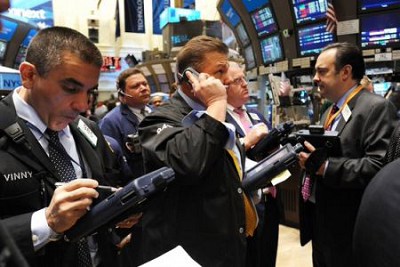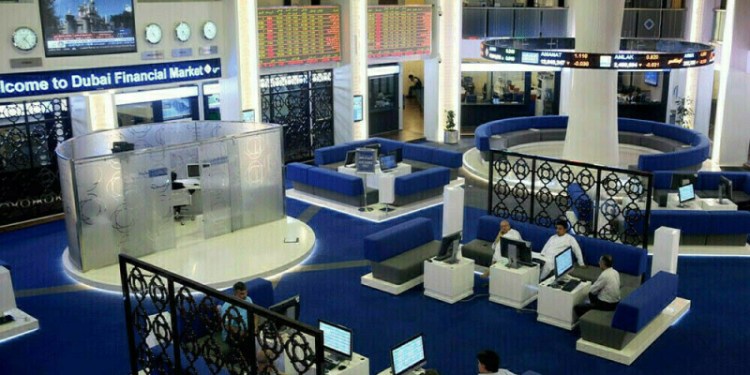Friday, 11 September 2015 04:11
 NEW YORK: Global equity markets outside the United States fell on Thursday as concerns about the economies of China and Japan added uncertainty to the world growth picture, but Wall Street rose, due in part to a rebound in oil prices.
NEW YORK: Global equity markets outside the United States fell on Thursday as concerns about the economies of China and Japan added uncertainty to the world growth picture, but Wall Street rose, due in part to a rebound in oil prices.
The FTSEurofirst 300 index of top European shares snapped a three-day rally to close down 1.4 percent, following a disappointing session in Asia.
Wall Street went against the grain and advanced in a choppy session as Apple shares rebounded and the rise in oil prices boosted the energy sector.
The dollar was down 0.54 percent at 95.486 against a basket of major currencies as investors mulled whether recent volatility, amid a slowdown in China and other world markets, would prevent the Federal Reserve from raising U.S. interest rates next week.
“The fact of the matter is nothing has changed,” said Mark Luschini, chief investment strategist at Janney Montgomery Scott in Philadelphia.
“We’ve gotten no news that can either confirm or deny the Fed’s prospects for raising interest rates next week, and we’ve gotten no news out of China that says they’ve arrested their deceleration or that the deceleration continues.”
The Dow Jones industrial average rose 76.83 points, or 0.47 percent, to 16,330.4, the S&P 500 gained 10.22 points, or 0.53 percent, to 1,952.26 and the Nasdaq Composite added 39.72 points, or 0.84 percent, to 4,796.25.
The latest policy responses to signs of stuttering global growth came as the Reserve Bank of New Zealand cut its benchmark rate by 25 basis points and signaled more would follow if China’s economy slows further. The Kiwi dollar was down 1.41 percent to $ 0.6295.
Risks concerning Chinese growth had already been highlighted as producer prices in China fell for a 42nd straight month and car sales dropped, highlighting the strains on the world’s No. 2 economy.
MSCI’s all-country world stock index slipped 0.08 percent.
Japan’s main gauge of capital spending also unexpectedly fell for a second straight month, data from July showed, highlighting its economic struggles.
Tokyo’s Nikkei fell 2.5 percent. Chinese stocks
ended down also, falling more than 1 percent each. Hong Kong and Australian stocks both lost more than 2 percent.
The emerging market woes were not limited to Asia.
Standard & Poor’s stripped Brazil of its investment-grade credit rating on Wednesday, further hampering President Dilma Rousseff’s efforts to regain market trust and pull Latin America’s largest economy from recession.
Financial markets are betting that Russia, South Africa, Turkey and Colombia could all be next in line for “junk” debt status. The Brazilian real tumbled to the lowest since 2002 and was last at 3.8469 per dollar.
MSCI’s all-country gauge of Asia Pacific shares outside of Japan lost 1.3 percent while its emerging markets index lost 0.3 percent.
Brent crude oil, which has halved in price in little over a year, settled up 2.75 percent at $ 48.89 per barrel. WTI U.S. crude jumped 4 percent to settle at $ 45.92 as strong U.S. demand for gasoline overshadowed increased crude inventories.



























